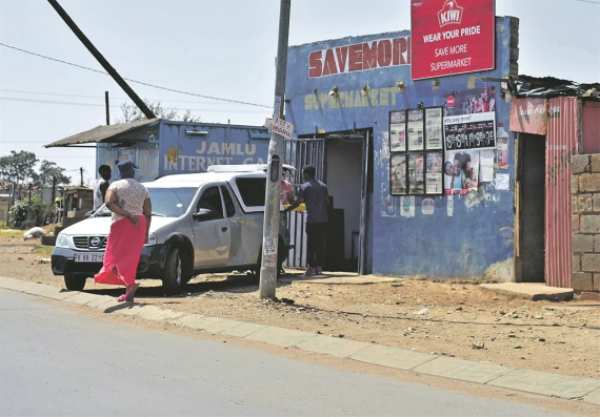On 1 June 2020, South Africa moved to level three lockdown allowing more businesses to operate, essentially opening up the economy. However, the COVID-19 crisis and lockdown in South Africa has had a significant impact on most industries directly or indirectly. Further compounding this issue is the knock-on effect, such as the credit industry being affected by the decrease in retail activity which in future could see access for consumers to traditional banking and finance related products being impacted.
Through tracking and analysis of the emerging patterns in the credit and related industries, we see early indicators of what is to come over the next few months.
Four out of 10 South African consumers started their credit journey with a retail card
The South African credit market is unique in that, over the past 30 years, growth has been underpinned by an innovative and creative Clothing and Furniture Retail credit market.
Scoresharp, an Experian company, conducted an in-depth analysis for the National Clothing Retail Federation (NCRF), looking at 28.5 million consumers who opened 138.7 million credit accounts in South Africa over a five-year period (2014 – 2018). It was evident from the research that 4 out of 10 consumers started their credit journey with a retail card (in-store clothing card), 2 out of 10 with a micro loan and 2 out of 10 with a traditional bank personal loan.
A significant portion of consumers who begin their journeys with retail accounts migrate to other credit products over time – the results show the importance of retail credit in South Africa:
- 25% of retail card initiates progress to wealth-creating loans with secured credit products, including home finance and vehicle finance.
- More than 80% will qualify and open either a personal or microloan.
- More than 50% qualify and open telecommunications contracts and/or insurance products.
Retail credit is more accessible to the broader South African population
When looking at the distribution of credit products across various demographic metrics, it becomes further apparent that the Clothing Retail credit market is the most inclusive industry in the South African credit market.
The nature of the retail credit industry, where the ability to support broader credit growth through retail margin (thus being an incubator for new credit entrants to the market), results in more consumers starting their credit journeys via retail accounts, thereby promoting a more inclusive economy that minimises inequality. In addition to opening doors to other credit products, retail credit has been proven to be more gender, demographic and age-inclusive than any other form of credit.
When looking at the number of active credit accounts at the end of the first quarter 2020, the retail industry in total made up 49% (17.3 million) of active credit accounts, with the clothing retail industry contributing 38% (13.5 million) of these, emphasising how important the Clothing Retail credit industry is to the overall South African credit industry.
What does credit look like post-lockdown?
The impact of the national lockdown and subsequent lack of credit activity in the Retail Industry could have a negative impact on the overall credit economy beyond the initial impact of the Covid-19 pandemic. It is therefore essential, from a holistic credit economy perspective, that the retail credit industry can operate without limitations and more importantly remains strong to ensure an accelerated growth phase when we reach the new normal.
Whilst we expect that the structure of the credit industry to remain intact and stable post the Covid-19 crisis, the way credit providers manage their portfolios across the credit lifecycle may require new thinking.
Non-credit data is expected to play an increasingly critical role in the South African recovery journey as the probability increases that a larger portion of the South African new to credit population will not have the access to previously available Clothing Retail credit due to a more constrained Clothing Retail market.
The knock-on effect for the Banking industry could be severe as the flow of new credit entrants from the Clothing Retail industry slows, resulting in the impact of the virus being felt well into the future.
To mitigate this impact, the market could be required to consider consumer behavioural data as an important factor in assessing an individual’s creditworthiness. Data like online activity in terms of mobile applications most frequently used, contact history via social media, URL strings searched when online and time of day- and time spent online may become as valuable as traditional credit data.
With access to non-traditional data limited and primarily controlled by large social media platforms, the immediate recovery and future growth of the South African credit economy will be even more dependent on a strong, vibrant retail industry.
- ENDS –





